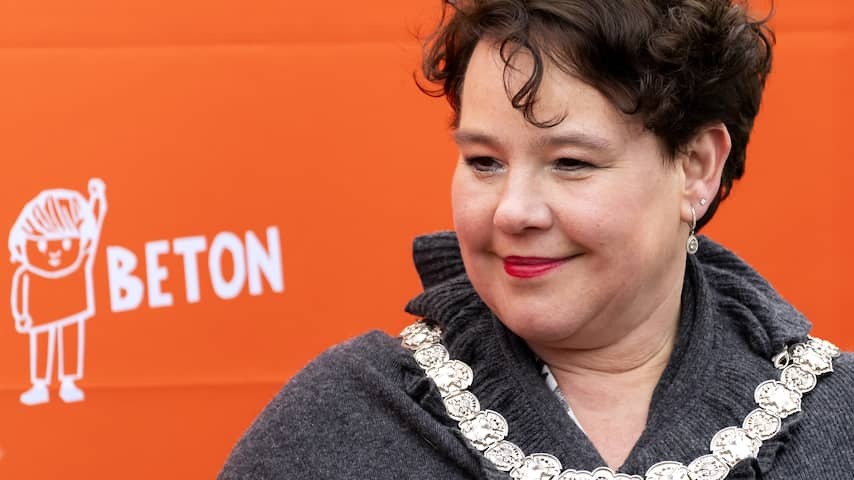
The Utrecht mayor Sharon Dijksma tells NU.nl how she dealt with the aggression of pro-Palestinian demonstrators at the town hall on Thursday evening. Security guards were hit and she fled the commotion by car. Yet Dijksma emphasizes the responsibility of politicians: “We must set an example.”
On the public gallery of the council chamber on Thursday evening were many pro-Palestinian protesters. The city council voted on boycotting Israeli services and goods. The first motion was voted down and the second as well, by one vote. Then the anger began, says Dijksma. “The protesters stood between council members and shouted: ‘Blood on your hands!'”
Dijksma immediately suspended the meeting. Together with the clerk and security, she urged the demonstrators to leave the town hall. The group quickly left the council chamber and it took a while before the people had also left the building.
Outside, in front of the town hall, Dijksma still wanted to talk to the dozens of demonstrators for a moment. But the atmosphere became grim. “Someone was screaming 10 centimeters from my face.” Dijksma walked back, but “four to five people stood hooked in front of the door.” The pushing and pulling began when security guards and two officers wanted to remove them. The security guards then received “a few blows,” says the mayor.
Only afterwards did she hear that people were also trying to get to her, she says. She didn’t realize that at the time because she was quickly put in a car. It drove around the town hall, after which she returned to the council meeting via a back door. The other votes then went ‘just’ through.
‘Don’t push your point with intimidation’
Dijksma says over the phone that she is doing well. “But it does have an impact on you, I am a human and not a robot.” As an administrator, she has experienced angry halls before. Once before, someone approached her aggressively from close range. But she has never experienced such an outburst.
The mayor emphasizes that protesting is allowed. “I understand very well that you feel a lot of emotion about everything that is happening in Gaza, I feel that myself too. But you cannot push your point with intimidation and aggression.”
When she was outside, her main thought was that she had to return to the council meeting. Both out of concern for her distraught colleagues and for the importance of their work. “It would have major consequences if democratic processes did not go through due to intimidation.”
Differing in opinion with decency
The mayor says that she acted intuitively by de-escalating. Images from the council chamber show how she leads the way towards the protesters and gestures to them to leave the room. Dijksma did not want to involve the police to remove the protesters from the room.
“We shouldn’t go down that path. In this country, democratic meetings must take place without the police being present.” Moreover, years of imprisonment can be given for disrupting a council meeting. Dijksma wanted to protect these people against that, she says.
The Utrecht mayor clearly wants to draw a line. “My concern is that people want to get their way with aggression and intimidation. You should differ in opinion with decency, that is also allowed about intense things. I am very armored about that.”
Exemplary function for politicians
“It is my job that everyone can speak out without being harassed,” Dijksma says seriously. “I have made an attempt to do that in a way that I think it should be done. I always try to be empathetic and clear.”
The mayor of Utrecht sees an exemplary function for administrators and politicians in The Hague when it comes to how the debate should be conducted. “Don’t stir up, de-escalate and set boundaries where necessary.”